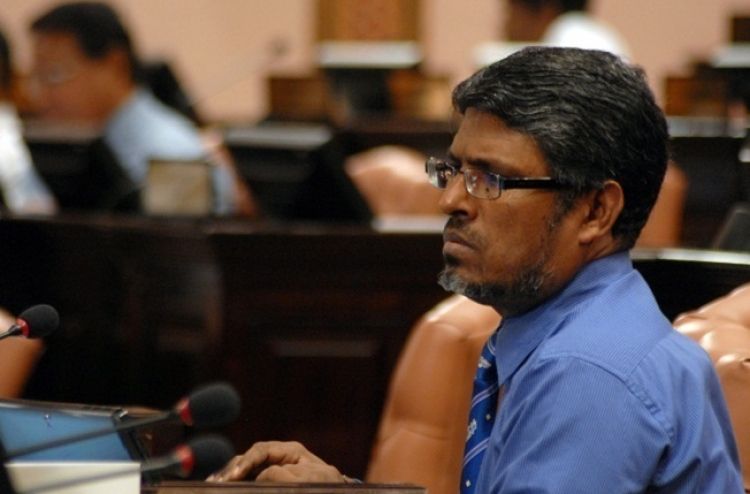Dr Afrasheem killed by ‘jihadi group’ linked to al-Qaeda
Ex-Islamic minister Dr Shaheem accused of lying to inquiry commission.

17 Nov 2019, 09:00
Dr Afrasheem Ali, a lawmaker and moderate religious scholar, was brutally murdered in October 2012 by a local extremist group with ties to al-Qaeda, the presidential commission on deaths and disappearances concluded.
According to key findings of the commission’s report revealed at Sunday’s sitting of parliament by Speaker Mohamed Nasheed, the jihadi group was led by Mohamed Mazeed and Somith Mohamed and the planning was overseen by Azlif Rauf, a former soldier charged in connection with the murder who was allowed to leave the country in January 2015.
An estimated MVR4 million (US$259,400) or MVR6 million was spent on the “murder contract,” the report stated.
The Progressive Party of Maldives MP for Ungoofaru was stabbed to death at the stairwell of his home by Hussain Humam – the only person convicted of the murder – with his acquitted co-defendant Ali Shan and an unnamed minor. The commission also suspected the involvement of nine people who left the country hours after the murder and joined militant groups in Syria and Iraq. A group of suspects were inside Afrasheem’s apartment building and the nearby Christie’s restaurant on the night of the murder.
Become a member
Get full access to our archive and personalise your experience.
Already a member?
Discussion
No comments yet. Be the first to share your thoughts!
No comments yet. Be the first to join the conversation!
Join the Conversation
Sign in to share your thoughts under an alias and take part in the discussion. Independent journalism thrives on open, respectful debate — your voice matters.




